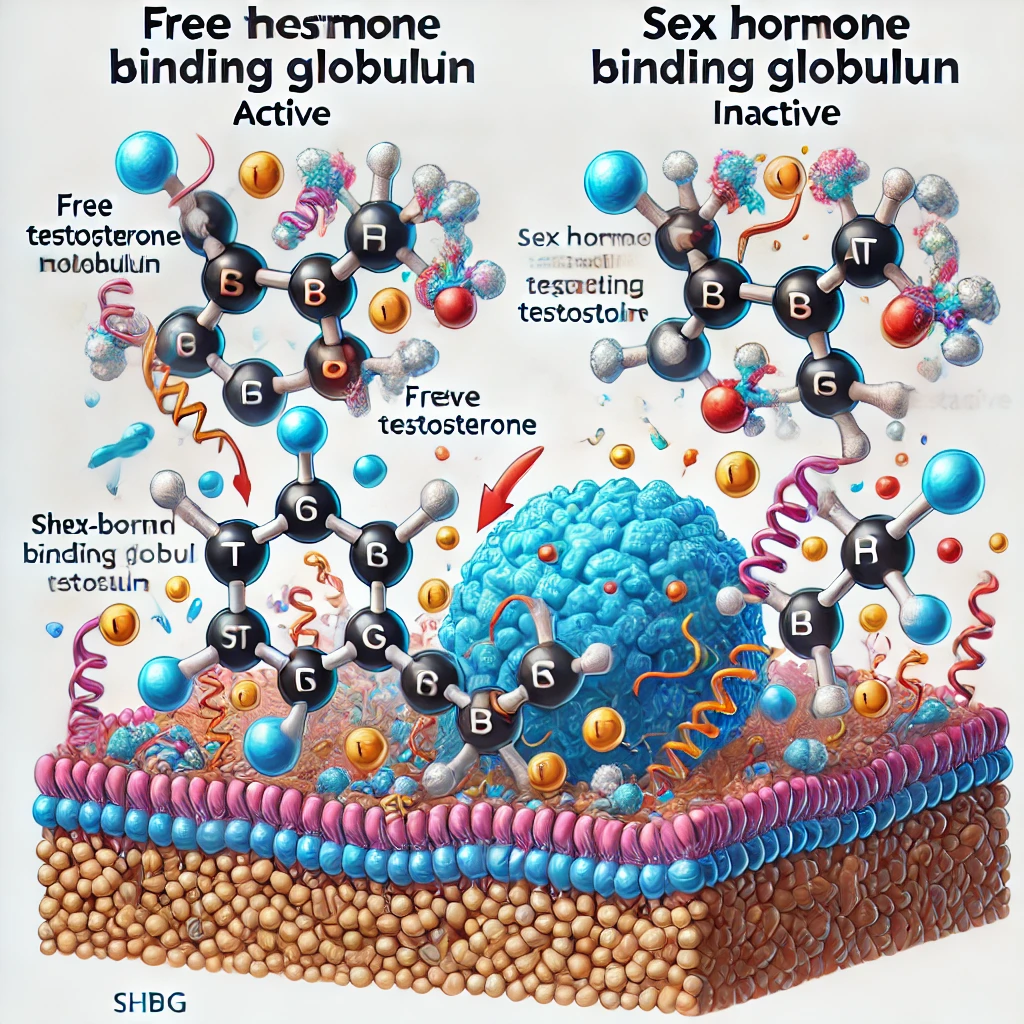Understanding SHBG’s Role in Testosterone Binding
Sex hormone-binding globulin (SHBG) is a protein produced by the liver essential for controlling the bioavailability of sex hormones, particularly testosterone, in the body. This protein can bind to both free testosterone and SHBG-bound testosterone.
Free Testosterone: The Active Form
Free testosterone is the hormone’s active form, readily available to the body’s tissues. It is a kind of testosterone that can interact with and alter the activities of cells and organs. When testosterone is not attached to SHBG, it is called free. The body can use it for various physiological functions, including muscle mass maintenance, sex drive regulation, and bone health promotion.
SHBG-Bound Testosterone: The Inactive Version
SHBG-bound testosterone is an inactive version of the hormone. When testosterone binds to SHBG, it becomes less accessible to the body’s cells and tissues. This is due to SHBG’s binding to testosterone, which inhibits it from interacting with the body’s target receptors. SHBG-bound testosterone is effectively sequestered and unable to exert its full physiological effects.
The Importance of Testosterone Balance
The balance of free testosterone and SHBG-bound testosterone is critical for maintaining normal hormone levels and the proper functioning of numerous body systems. Age, sex, and certain medical problems can all impact SHBG levels and, as a result, the availability of free testosterone.
SHBG as a Testosterone Reservoir
Although testosterone is coupled to SHBG, it is not completely inaccessible. It functions as a reservoir, gradually releasing testosterone back into circulation when needed by the organism. Think of SHBG as a protein that distributes testosterone across the bloodstream. Some testosterone molecules go freely, while SHBG transports others.
SHBG’s Impact on Testosterone Levels
Greater SHBG levels may result in a higher total testosterone reading in a blood test but a lower percentage of free testosterone. This is because more testosterone is bound to SHBG, leaving less free testosterone in circulation.
Weight and SHBG Relationship
Obesity is linked to higher SHBG levels. This can result in a man having a normal or even high total testosterone level on a blood test but a lesser amount of free testosterone available for the body to use. This can cause signs of low testosterone, such as diminished libido or erectile dysfunction.
Assessing Testosterone Status
When assessing a man’s testosterone state, a doctor will often take into account both total testosterone and SHBG levels. Even if the total testosterone level is within normal limits, a high SHBG level may indicate a relative deficit in free testosterone.
